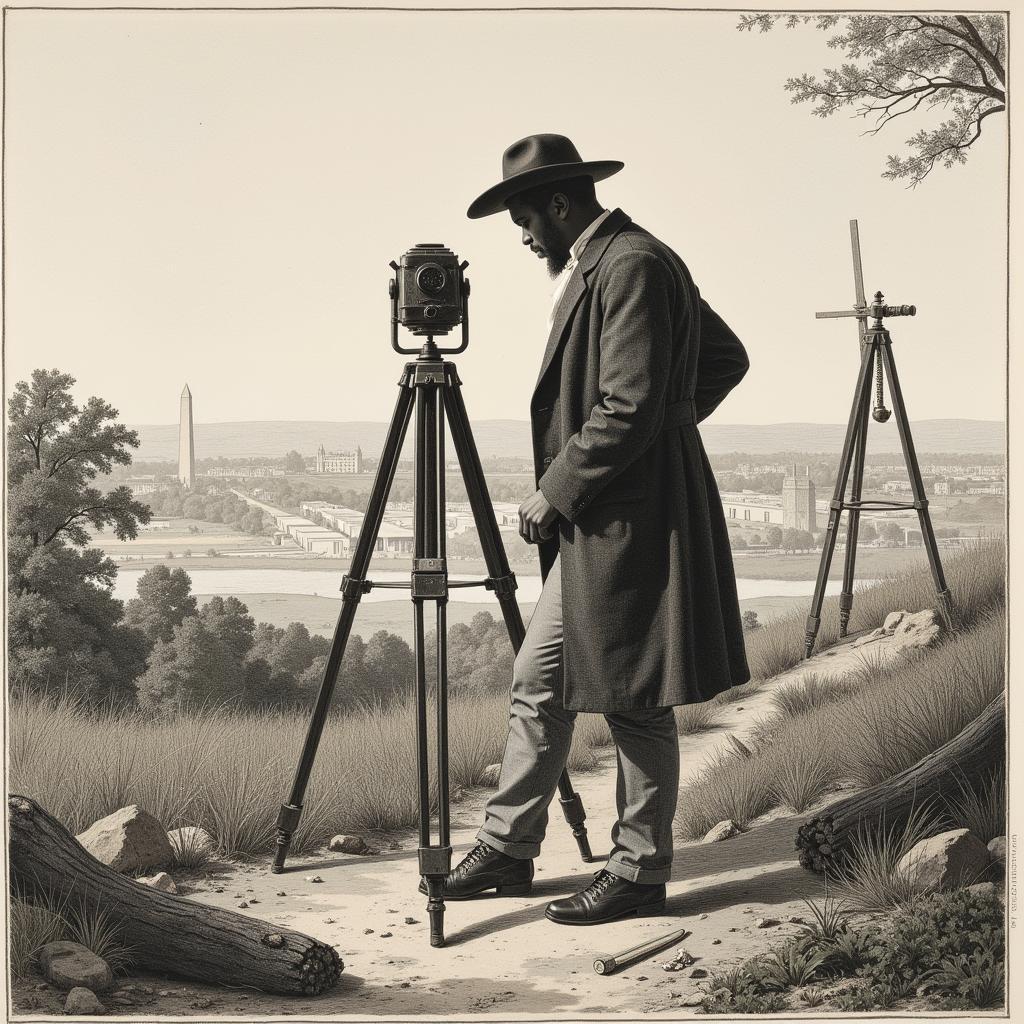Benjamin Banneker’s profound impact on society resonates even today. Born free in 1731 in Maryland, this extraordinary man defied the limitations of his time to become a celebrated astronomer, mathematician, surveyor, and author. His contributions extended beyond scientific achievements, reaching into the realms of social justice and equality.
A Self-Taught Genius: Banneker’s Early Life and Education
Banneker’s thirst for knowledge began early. Despite limited formal schooling, his grandmother taught him to read and write, opening a world of possibilities. He later attended a Quaker school for a few years, where his aptitude for mathematics and mechanics quickly became apparent. He relentlessly pursued self-education, borrowing books and studying diligently. This dedication laid the groundwork for his remarkable future accomplishments.
Benjamin Banneker and the Design of Washington D.C.
One of Banneker’s most significant contributions was his role in surveying and designing the federal capital, Washington D.C. In 1791, he joined the surveying team led by Major Andrew Ellicott, applying his expertise to the intricate task of laying out the city’s boundaries and infrastructure. Banneker’s mathematical prowess and astronomical knowledge were crucial to the project’s success. When Pierre L’Enfant, the original designer, abruptly left the project and took the plans with him, Banneker, using his remarkable memory, was able to recreate them from scratch, saving the project from significant delays and expenses. This achievement cemented his reputation as a brilliant and capable scientist and engineer.
 Benjamin Banneker Surveying Washington D.C.
Benjamin Banneker Surveying Washington D.C.
Banneker’s Almanac: A Testament to Intellectual Prowess
Banneker’s intellectual pursuits extended to astronomy. He began publishing a series of highly acclaimed almanacs in 1792, containing astronomical calculations, tide predictions, and other valuable information. These almanacs, published annually for six years, gained widespread recognition and solidified his status as a leading scientific figure of his time. The almanacs were not only practical tools but also served as platforms for Banneker’s social and political commentary.
Benjamin Banneker and the Fight Against Slavery
Beyond his scientific contributions, Banneker was a passionate advocate for social justice. He used his platform to speak out against slavery and advocate for the equal rights of African Americans. In 1791, he sent a copy of his first almanac to then-Secretary of State Thomas Jefferson, along with a letter eloquently challenging Jefferson’s views on slavery and urging him to recognize the inherent intelligence and humanity of African Americans. This bold act demonstrated Banneker’s courage and commitment to social justice.
Banneker’s Legacy: An Inspiration for Generations
Benjamin Banneker’s impact on society continues to inspire. He broke barriers and challenged societal norms, demonstrating the power of intellect and perseverance. His achievements in science, engineering, and social activism serve as a powerful reminder of the potential for individual brilliance to shape the world. He continues to be celebrated as a role model for his scientific contributions and his unwavering advocacy for equality. His story reminds us that even in the face of adversity, one person can make a profound difference.
Conclusion: Benjamin Banneker’s Enduring Influence
Benjamin Banneker’s contributions to society extended far beyond his scientific achievements. His legacy as a self-taught genius, an accomplished scientist, and a courageous advocate for social justice continues to resonate today. Banneker’s impact on society serves as an enduring inspiration for us to strive for excellence, challenge injustice, and work towards a more equitable and peaceful world.
FAQ
-
What was Benjamin Banneker’s most significant accomplishment? His contribution to the design of Washington D.C. and his published almanacs are often cited as his most significant achievements.
-
How did Banneker learn astronomy and mathematics? He was largely self-taught, utilizing borrowed books and his inherent intellectual curiosity.
-
What was the purpose of Banneker’s letter to Thomas Jefferson? He challenged Jefferson’s views on slavery and advocated for the equal rights of African Americans.
-
What is the lasting legacy of Benjamin Banneker? He is remembered as a brilliant scientist, engineer, and social activist who defied the limitations of his time.
-
How did Banneker’s almanacs contribute to society? They provided valuable astronomical data and predictions, and also served as a platform for his social commentary.
-
Why was Benjamin Banneker important to the design of Washington D.C.? He played a crucial role in surveying the city and recreating the lost plans, ensuring the project’s continuation.
-
How does Benjamin Banneker Impact On Society today? He serves as an inspiration for achieving excellence despite adversity and advocating for social justice.
Need More Help?
For further assistance, please contact us: Phone: 02043854663, Email: [email protected], or visit us at Zone 34, Bac Giang, 260000, Vietnam. Our customer support team is available 24/7.